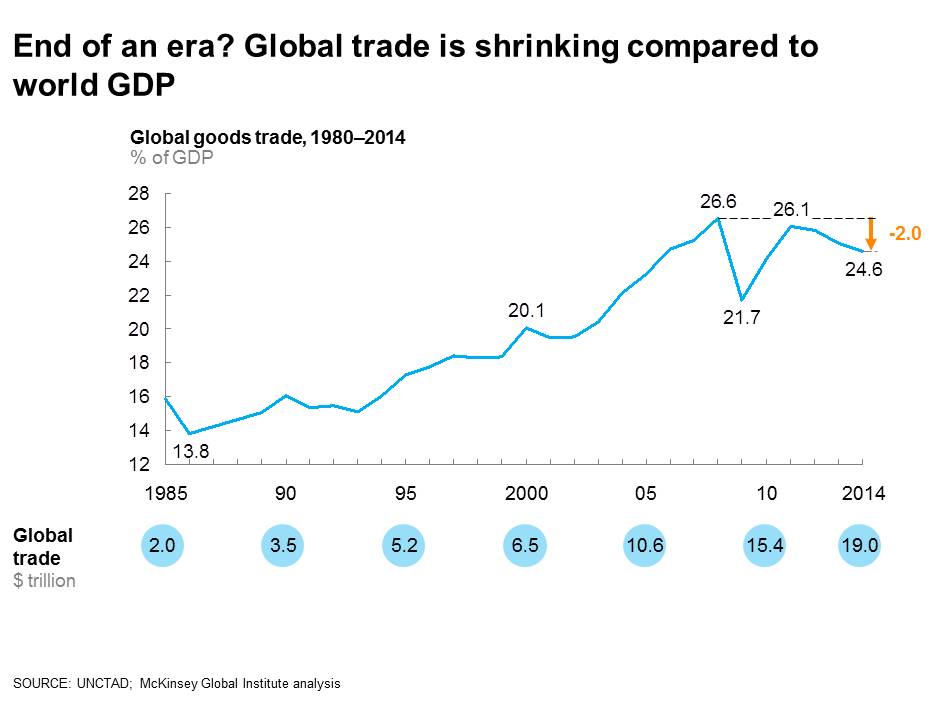Read in NRC Handelsblad of 28 April 2016:
Again two newspaper articles worth reading: one of Frank Boll (28 April), on capitalism triumphant, the other of Maarten Schinkel (4 May), on the future of global trade. Boll, founder of Ecofis, wrote in the Dutch newspaper NRC Handelsblad on how capitalism liberated migrants from the countryside on a massive scale since the Chinese started their economic liberalisation policies at the end of the seventies of the twentieth century. Urbanization started, poverty rates dropped, two billion people entered the middle class, world income doubled. So why is everybody criticizing capitalism nowadays? It seems the tremendous success of capitalism is creating its own enemies. It did so, Boll emphasizes, in the past too, time and again. The point is, he thinks, most of the developing world is still lacking full capitalism: land rights for the poor in particular. Then he quotes Nobel prize laureate Robert Solow (1924), who did research in the fifties and later on the evolution of economic growth. Land, labour, and capital can explain only 20 percent of economic growth. Eighty percent is non-economic: human capital, technology, social institutions, urbanisation, advanced cities providing both civic institutions and technological infrastructure. Regimes patronizing their citizens always reduce growth. (More on Solow: http://www.nobelprize.org/nobel_prizes/economic-sciences/laureates/1987/solow-lecture.html ).
Schinkel, editor of NRC Handelsblad, tried to explain the massive protests against TTIP, the Trade Pact between the US and Europe being negotiated. Globalization reached its peak in 1914. With the Great War, times of global prosperity ended, nation-states took over, which resulted in more crisis, another war. Then it took more than sixty years of troublesome state-to-state negotiations to reach the old level of globalization again. And, yes, now we all feel uncertain again. Why? Too many shocks, technology is developing too fast, urbanizing China entering the world market being a major shock we still have to accommodate. Again we all seem to long for strong nation-states, people hoping their governments will protect them. Schinkel: “Maybe this era of ever expanding global trade is over and are we now experiencing a 1914-moment. Whether this lack of global solidarity is making the world safer, can be doubted.” Sure, the nation-state will be no help. It will make things worse. Only global networks of expanding and collaborating cities can save the world. So enterpreneurial citizens all over the world, unite!

Geef een reactie